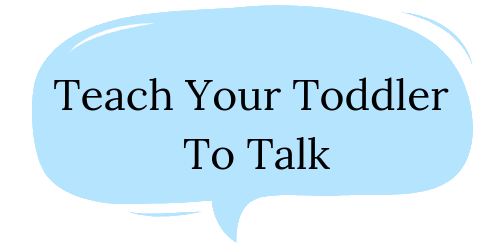Have you started to notice that your friends’ children seem to be talking a lot more than your child? You may notice that children even younger than yours seem to be talking more. You tell yourself that those kids must be super advanced for their age, but you can’t shake this nagging feeling that your child is behind. Everyone tells you not to worry, and that your child will catch up on their own, but are they right?
Every child develops at their own rate, and there is a range of typical language development, but there are certain milestones that we look for when assessing children’s language.
Below are the milestones for average language development:
LANGUAGE MILESTONES
12 months: 2 to 6 words
15 months: 10 words
18 months: 50 words
24 months: 200-300 words, and 2- word combinations (“mommy up”)
30 months: 450 words; frequently uses 3 word phrases
36 months (3 years): 1,000 words; uses 3-5 word sentences
Remember these are average numbers, so some children will have more words, and some less. If your child is 18 months and using less than 10 words, or 24 months and not yet combining words (e.g. “more milk”, “dadda up”), then I recommend making an appointment with a speech-language pathologist.
WHAT IS A LATE TALKER?
A late talker is a child who is between 18-30 months, who appears to be developing well in all other areas (e.g. understanding, social, play), but is using less words than is expected for their age. If a child is also behind in other areas of their development, they may have a language delay or disorder, and it is more likely they will need extra help learning language.
DO LATE TALKERS CATCH UP ON THEIR OWN?
This can be a difficult question to answer. Many children who are late talkers do catch up on their own, but many don’t, and we can’t always predict who will! That’s why the old attitude “wait and see” is not recommended, because we know how powerful early intervention is! We like to help all late talkers, even the ones who have good skills in other areas. Why wait another 3 or 6 months when you can take action today and help increase your toddler’s communication?
WHO’S LESS LIKELY TO CATCH UP?
If your child’s language is behind for their age, it is also important to be aware of the signs that might mean it’s less likely they will catch up on their own. If you observe any of the following, it is important to refer to a speech-language pathologist.
- Difficulty following directions
- Limited eye contact with other people
- Doesn’t respond consistently when their name is called
- Lack of shared interest and enjoyment in others
- Doesn’t show items of interest or point
- Limited pretend play
- Little babbling as an infant
- Family history of language delay or learning difficulties
HOW CAN YOU HELP YOUR CHILD TALK MORE?
If your child is behind on their language milestones, it is important to make an appointment with a Speech-Language Pathologist (SLP). Speech and Language Services are free in Canada for children under 5, and in many other countries as well. You can refer your child yourself, or talk to your family doctor about making a referral. It is also a good idea to get your toddler’s hearing checked. Even if it seems like they are hearing everything, they could have a slight hearing loss that could be contributing to their language difficulties.
If your child isn’t saying many words, there are things you can start doing today to help them! Click here to download my free cheat sheet for my top strategies to help your late talker!
References
Firstwords.ca. (2019). Red Flags | First Words. [online] Available at: https://firstwords.ca/firstwords/refer-a-child/red-flags/
Lanza, J. R., & Flahive, L. K. (2008). Communication Milestones [PDF]. East Moline: Linguisystems
Lowry, L. (n.d.). How to Tell if Your Child is a Late Talker – And What to Do about It. Retrieved May 21, 2019, from http://www.hanen.org/Helpful-Info/Articles/How-to-Tell-if-Your-Child-is-a-Late-Talker-–-and-W.asp



